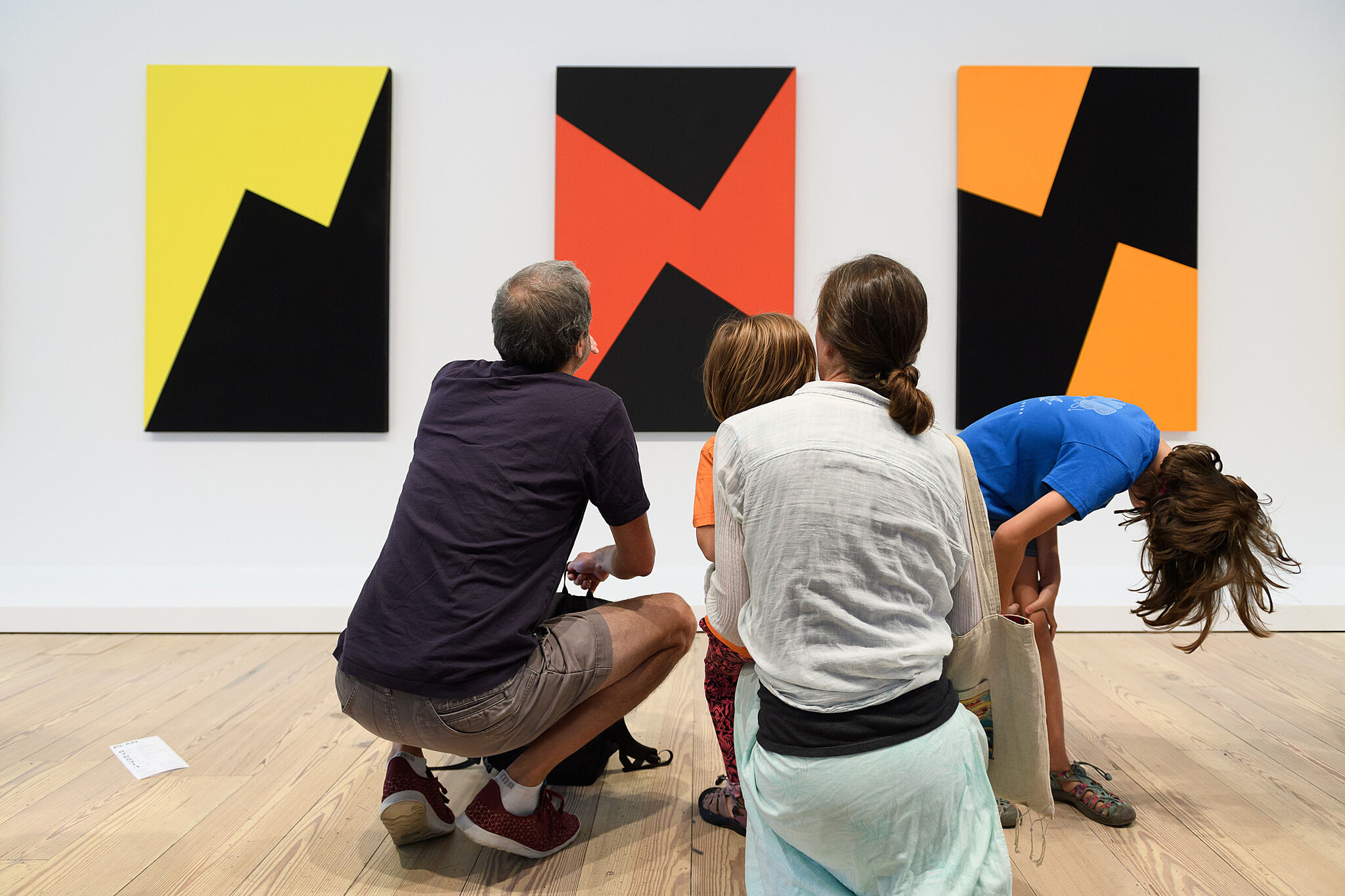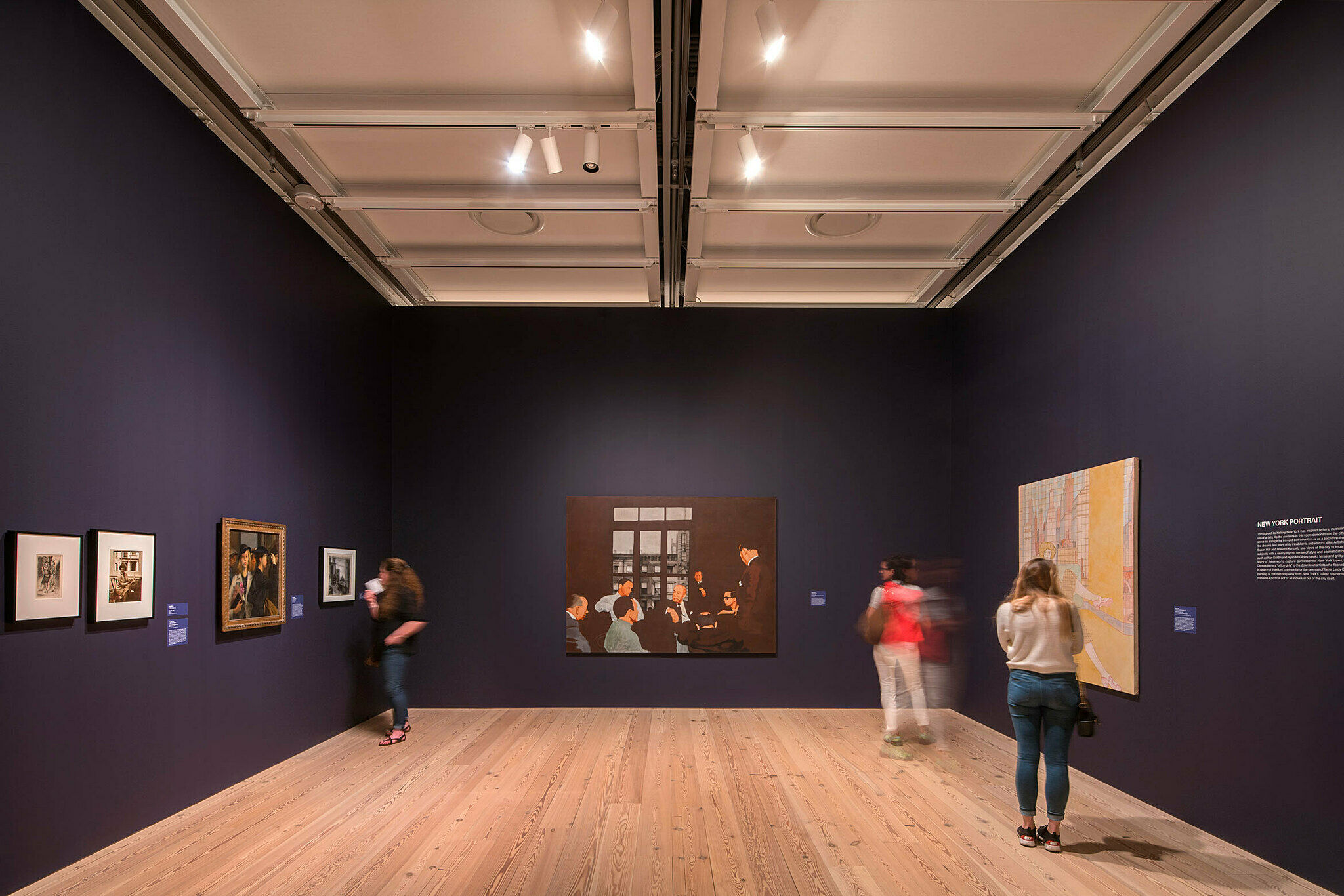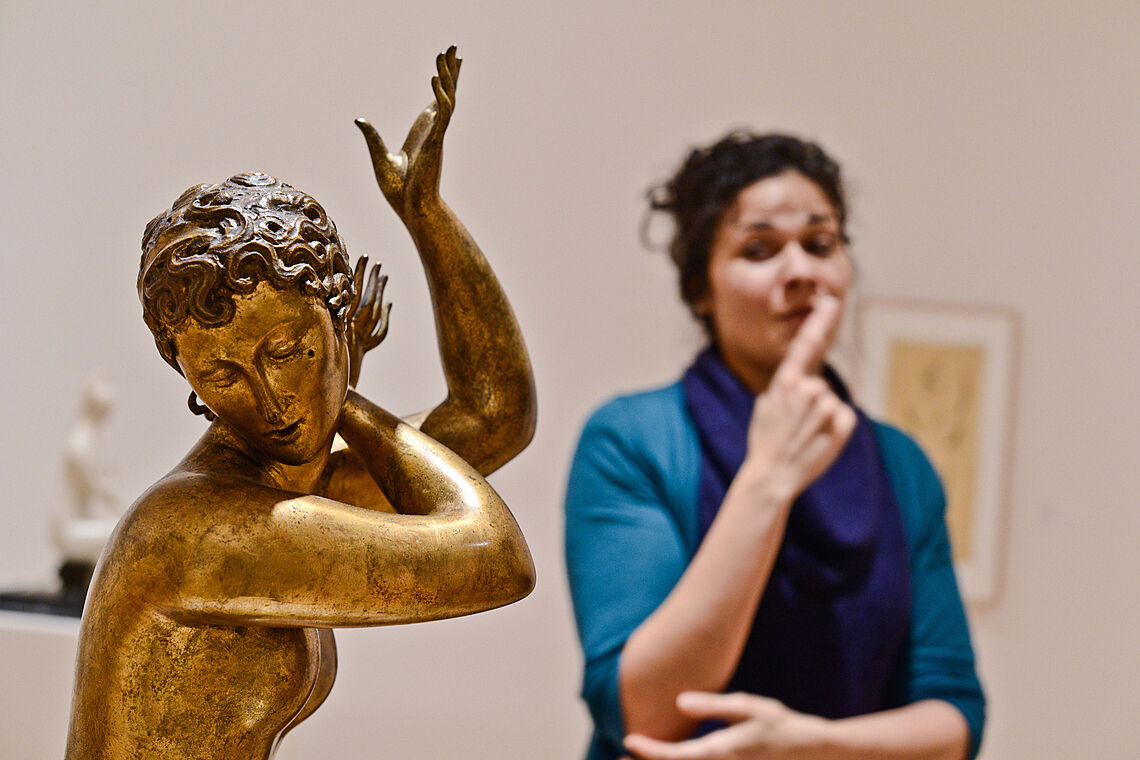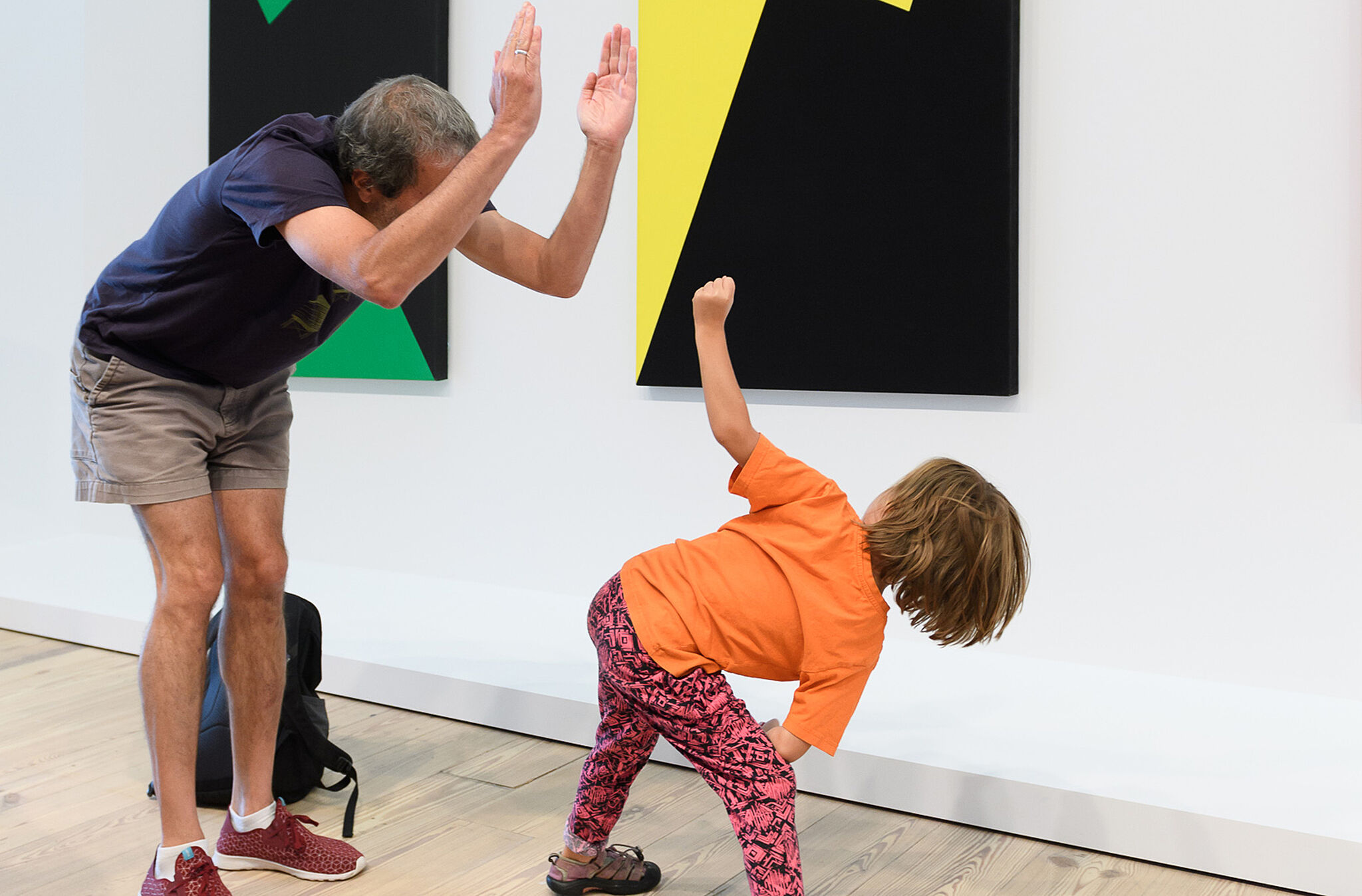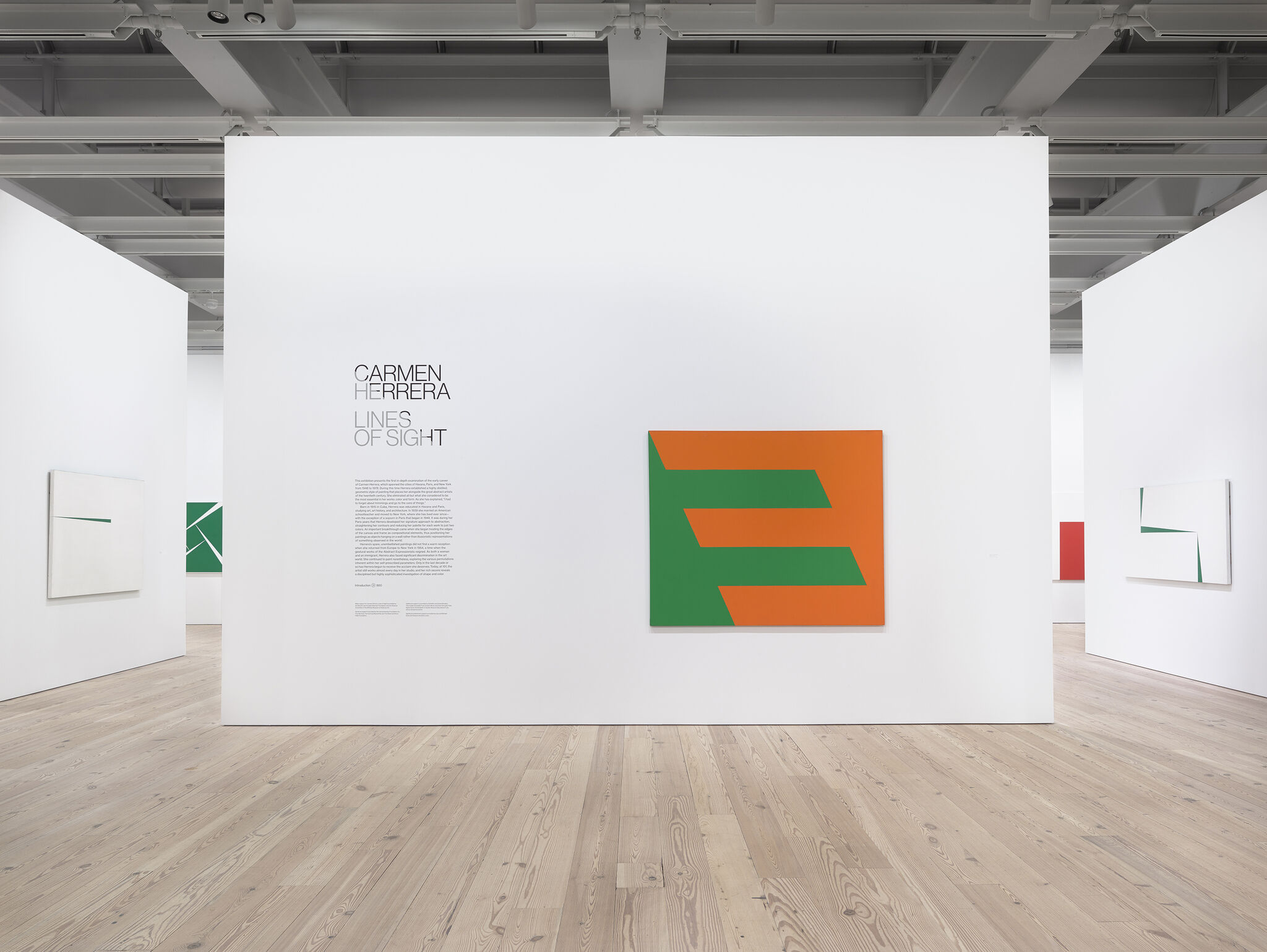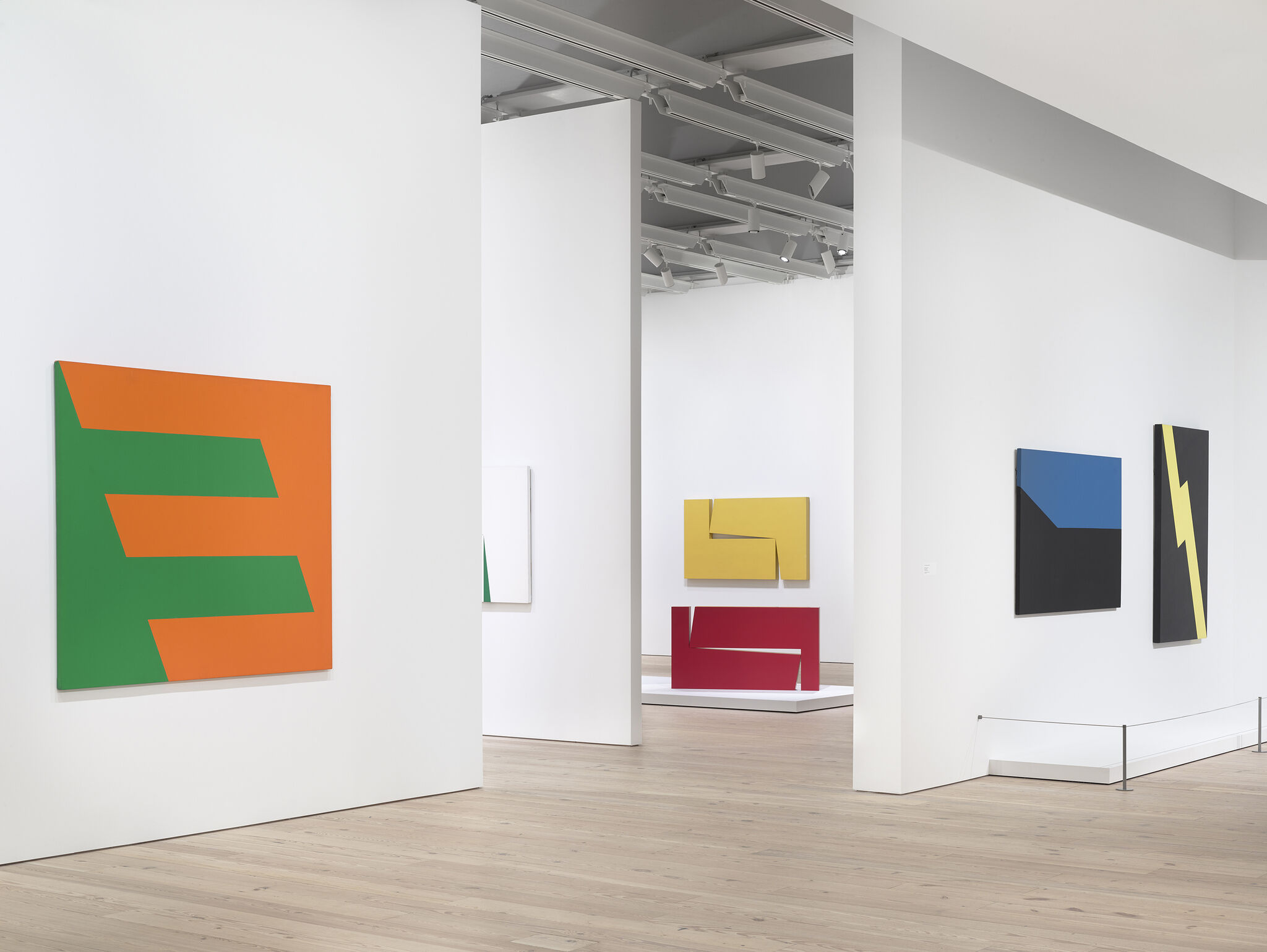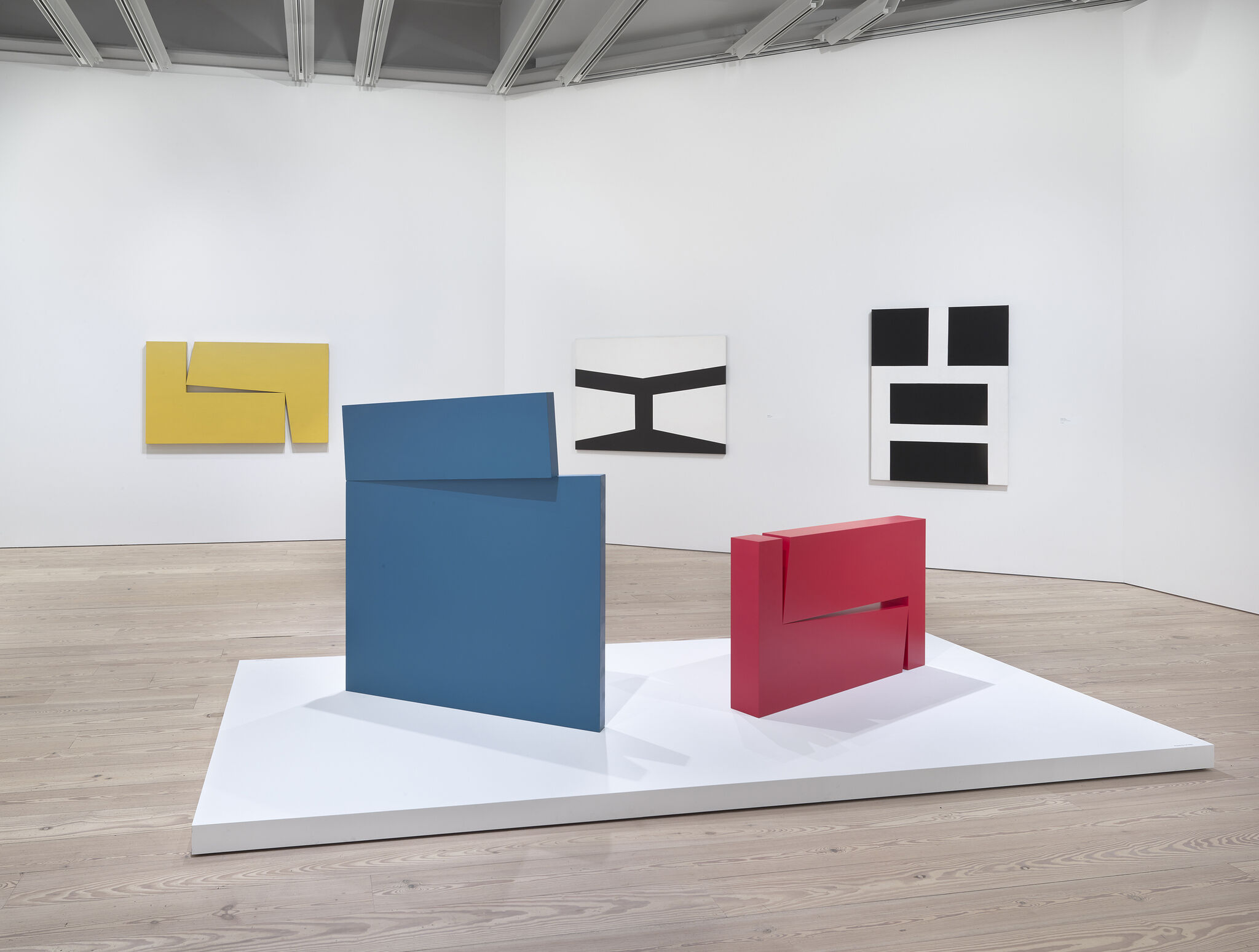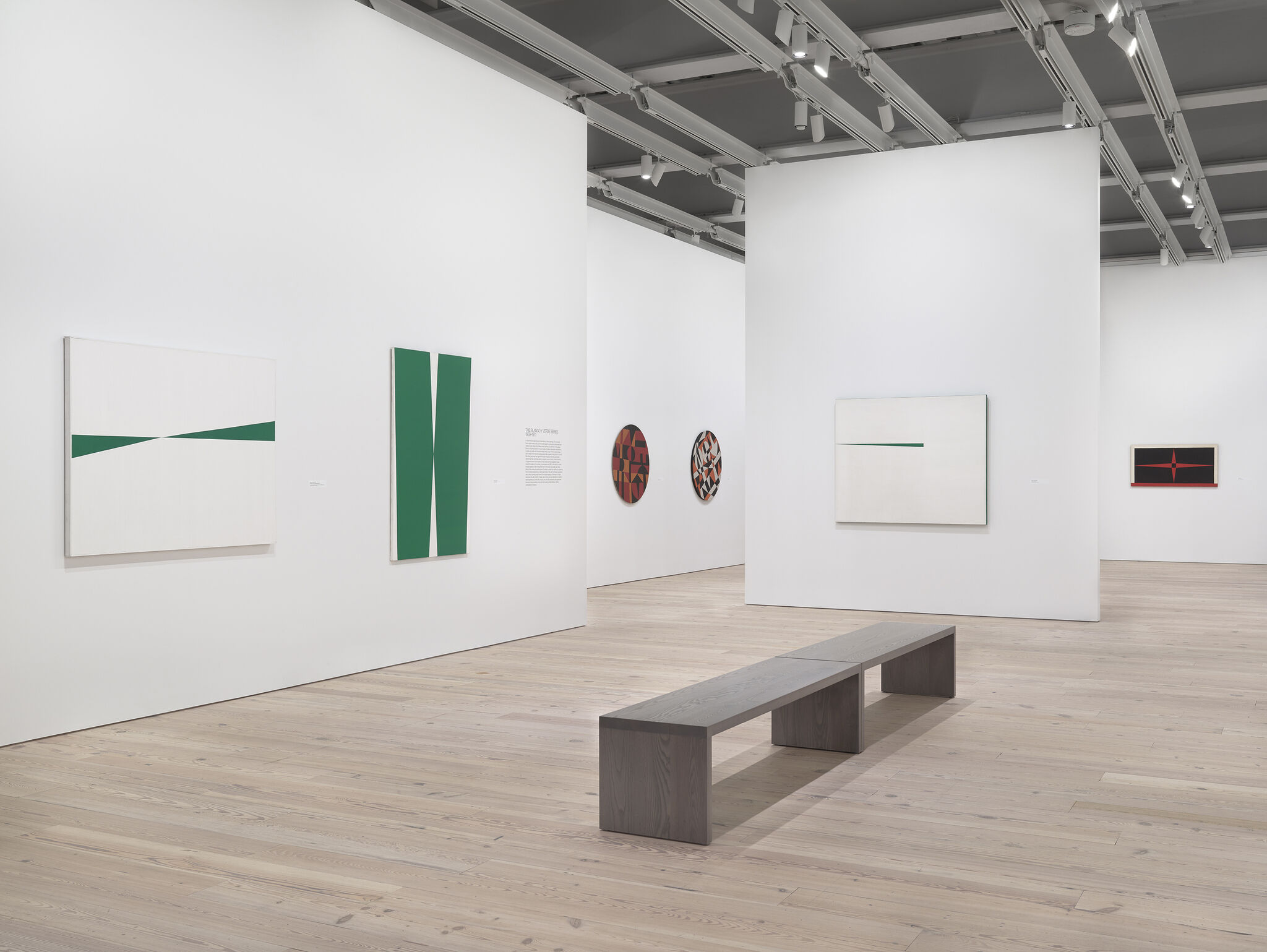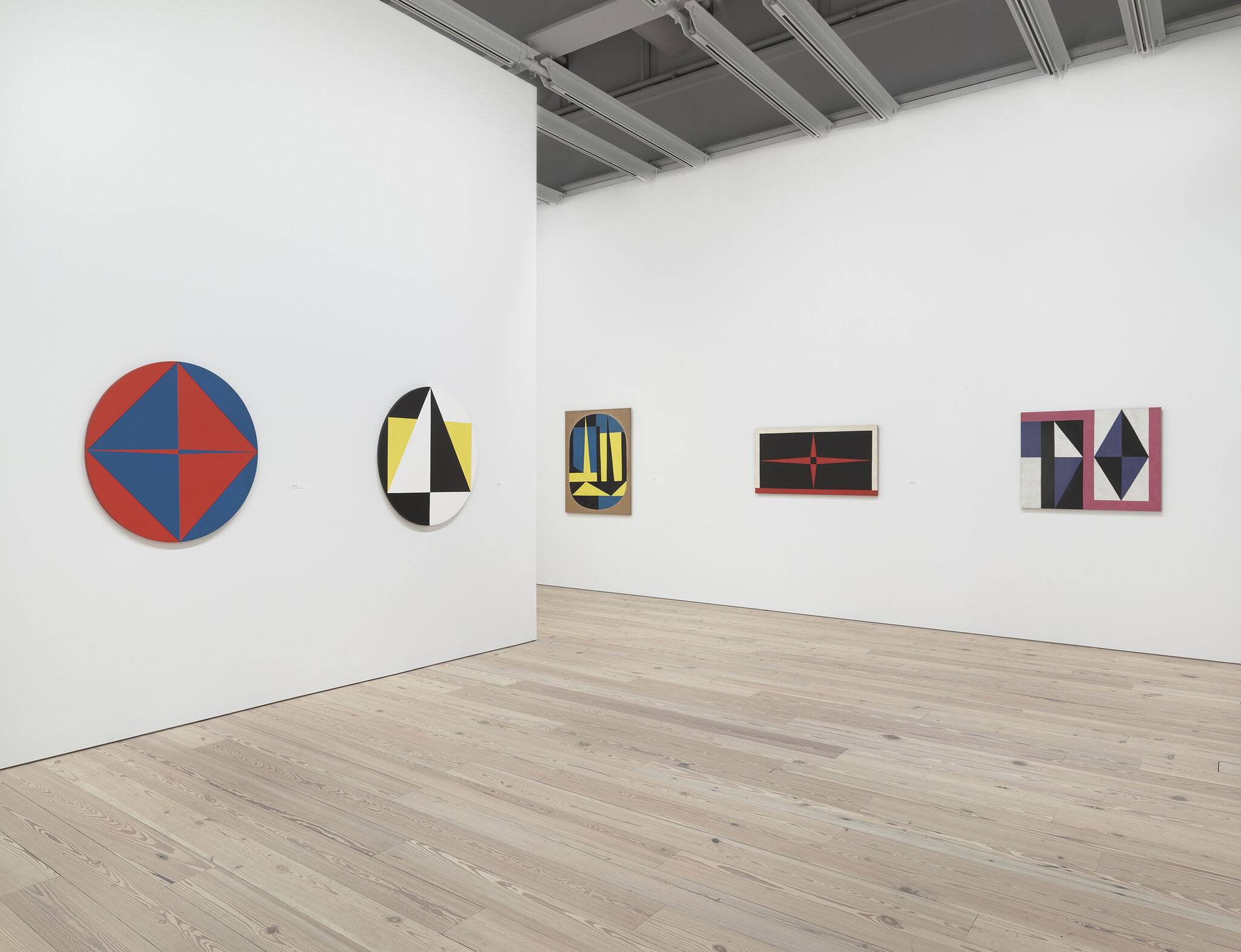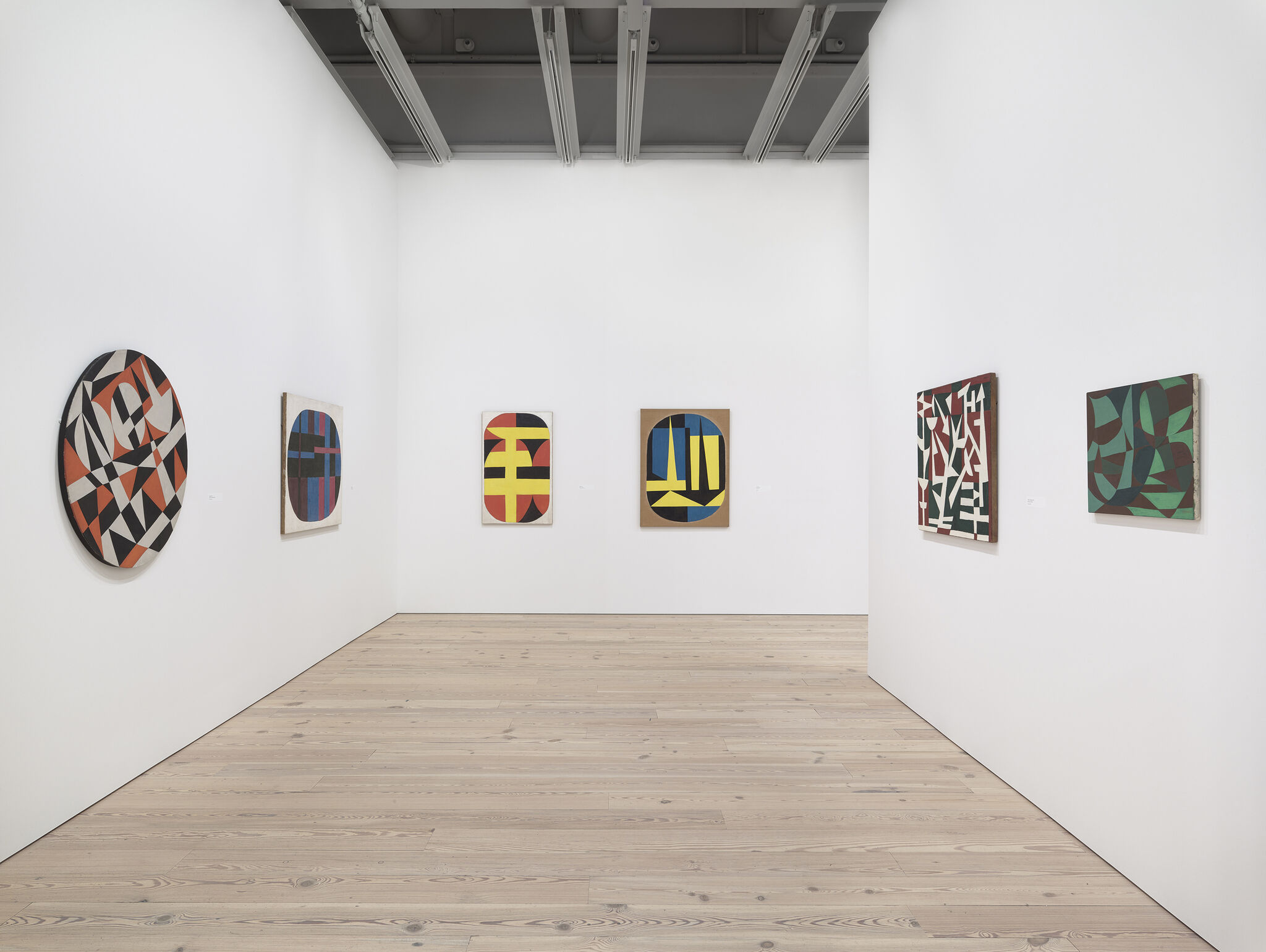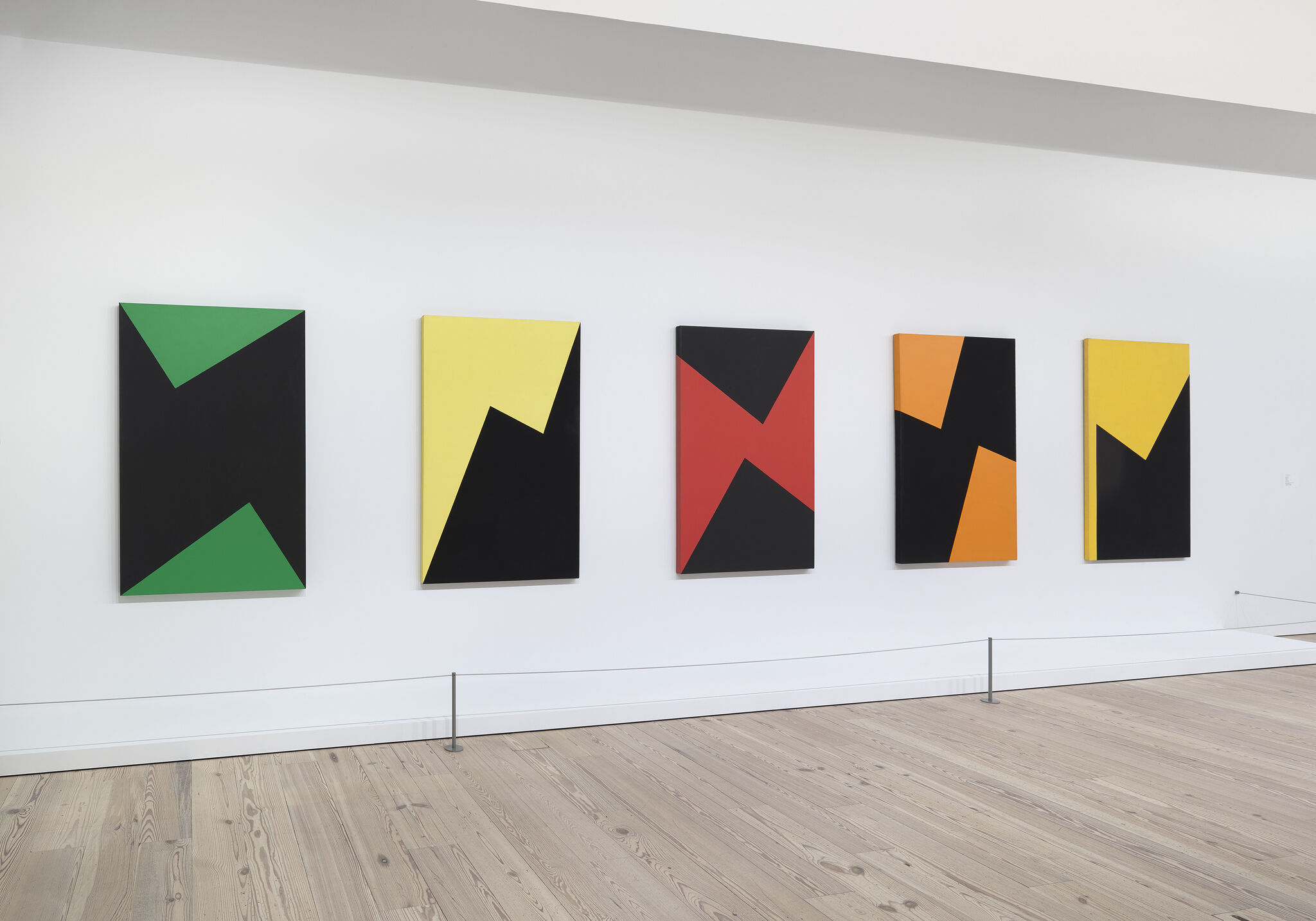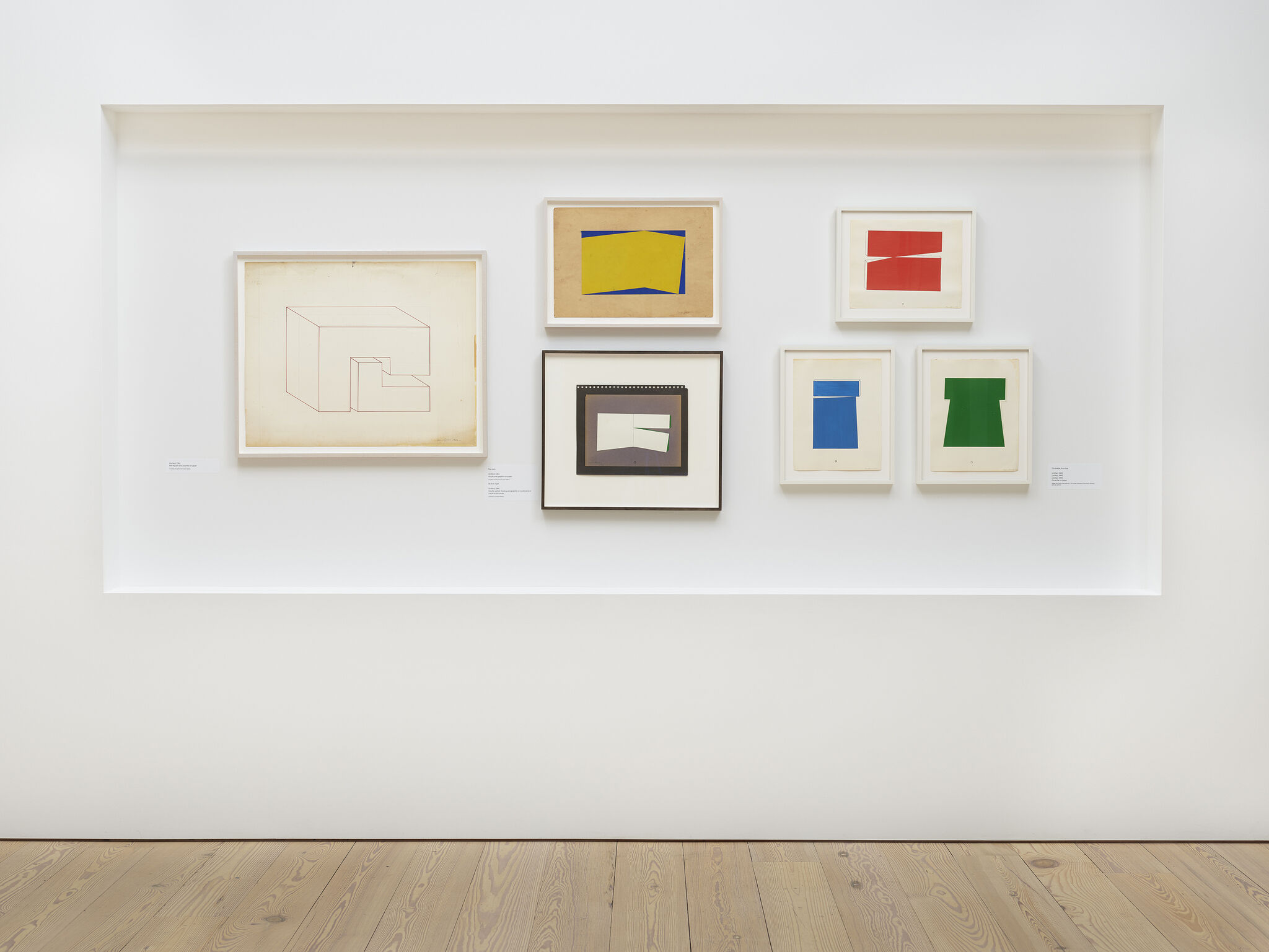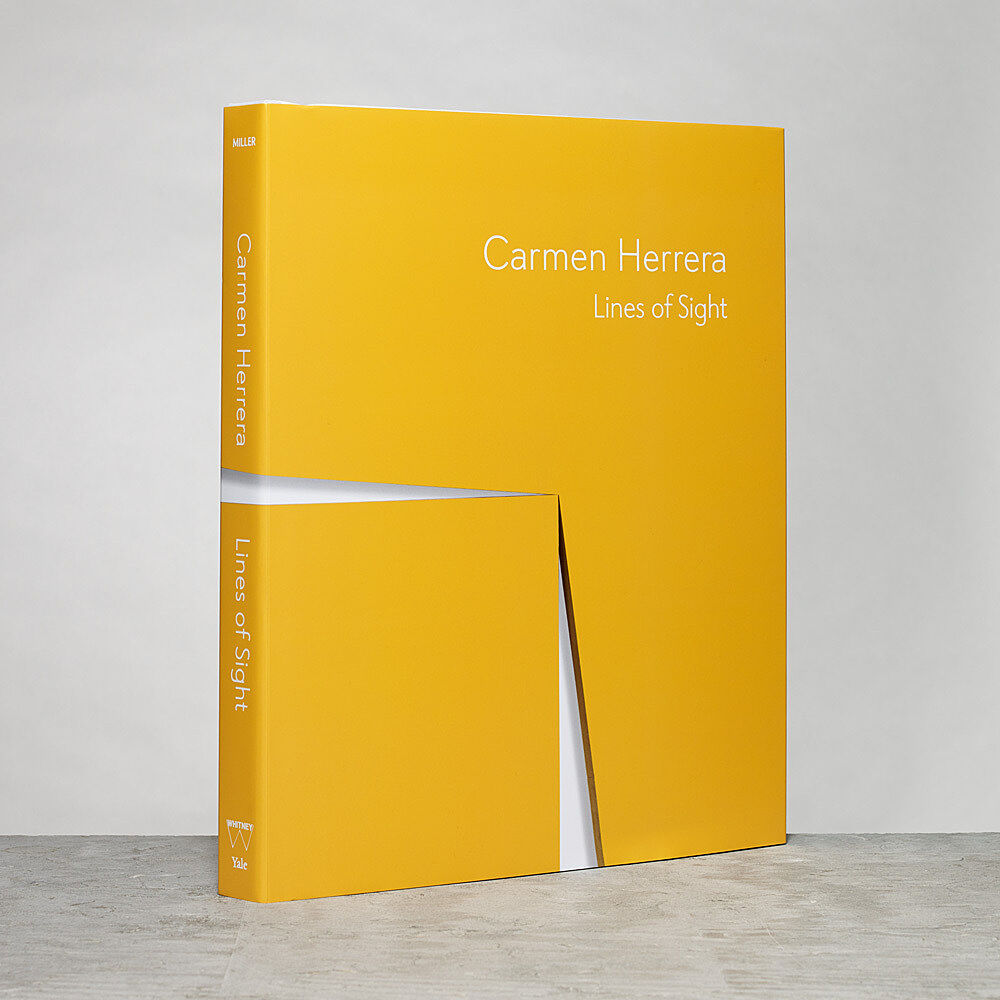Carmen Herrera: Lines of Sight
Sept 16, 2016–Jan 9, 2017
Carmen Herrera: Lines of Sight
Carmen Herrera: Lines of Sight is the first museum exhibition of this groundbreaking artist in New York City in nearly two decades. Focusing on the years 1948 to 1978, the period during which Herrera developed her signature style, the show features more than fifty works, including paintings, three-dimensional works, and works on paper. It begins with the formative period following World War II, when Herrera lived in Paris and experimented with different modes of abstraction before establishing the visual language that she would explore with great nuance for the succeeding five decades. Many of these works have never been displayed before in a museum.
The second section of the show is an unprecedented gathering of works from what Herrera considers her most important series, Blanco y Verde (1959–1971). Nine paintings from this series illustrate the highly innovative way in which Herrera conceptualized her paintings as objects, using the physical structure of the canvas as a compositional tool and integrating the surrounding environment.
With work dating from approximately 1962 to 1978, the final section illuminates Herrera’s continued experimentation with figure/ground relationships and highlights the architectural underpinnings of many of her compositions. This section includes four wooden sculptures—Herrera’s “estructuras”—as well as her brilliant Days of the Week, a series of seven vivid paintings.
Carmen Herrera: Lines of Sight is organized by Dana Miller, the former Richard DeMartini Family Curator and Director of the Collection at the Whitney Museum of American Art.
Major support for Carmen Herrera: Lines of Sight is provided by the Barnett and Annalee Newman Foundation and the National Committee of the Whitney Museum of American Art.
Generous support is provided by the Lily Auchincloss Foundation, Inc.; Tony Bechara; Tom and Lisa Blumenthal; and The Diane and Bruce Halle Foundation.
Additional support is provided by Estrellita and Daniel Brodsky, The Cowles Charitable Trust, Sondra Gilman and Celso Gonzalez-Falla, Agnes Gund, the Elizabeth A. Sackler Museum Educational Trust, and an anonymous donor.
Significant endowment support is provided by Sueyun and Gene Locks.
About the Artist
Born May 30, 1915, in Havana, Cuba, Carmen Herrera was educated in Havana and Paris, studying art, art history, and architecture. In 1939 she married an American, Jesse Loewenthal, and moved to New York City, where she attended classes at the Art Students League and was a frequent visitor to the Whitney Museum of American Art. From 1948 to 1953, Herrera and Loewenthal lived in Paris, where she became associated with an international group of artists, the Salon des Réalités Nouvelles. Herrera exhibited her work with them regularly and developed a distilled, geometric style of abstraction, reducing her palette to three colors for each composition, then further to two. Herrera’s hard-edged canvases emerged at the same time that Ellsworth Kelly, whose time in France overlapped with Herrera’s, began producing his own abstractions and around the same time that Frank Stella began producing his famous black paintings.
Herrera’s ascetic compositions, which prefigured the development of Minimalism by almost a decade, did not find a warm reception when she returned to New York in 1954, a time when Abstract Expressionism still reigned supreme. As both a woman and an immigrant, Herrera faced significant discrimination in the art world; yet she persisted, and continued to paint for the next six decades, only rarely exhibiting her work publicly. Today, at the age of 101, Herrera continues to work almost every day in her studio, and her oeuvre demonstrates a disciplined but highly sophisticated exploration of color and form. As she once stated, "I believe that I will always be in awe of the straight line, its beauty is what keeps me painting." Since the late 1990s Herrera has garnered increasing attention for her work, selling her first painting in 2004. The last significant museum presentation of Herrera's work in this country was a 2005 show at Miami Art Central, which was preceded only by a 1998 show of her black and white paintings at El Museo del Barrio and a 1985 show at The Alternative Museum, both in New York. Her first monographic presentation in Europe was held at the Ikon Gallery in Birmingham, England, in 2009, which then traveled to Museum Pfalzgalerie, Kaiserslautern, Germany. In the last decade, the Museum of Modern Art, Walker Art Center, Hirshhorn Museum and Sculpture Garden, Boston Museum of Fine Arts, and Tate Modern have all acquired works by the artist.
Publication
Carmen Herrera: Lines of Sight
This important catalogue offers the first sustained examination of Herrera’s early career from 1948 to 1978, which spans the art worlds of Havana, Paris, and New York. Essays consider the artist’s early studies in Cuba, her involvement with the Salon des Réalités Nouvelles in post-war Paris, and her groundbreaking New York output, as well as situate her work in the context of a broader Latin American avant-garde art.
In the News
"A 101-Year-Old Artist Finally Gets Her Due at the Whitney"
—The New York Times
"Virginia Woolf used to say that art has no gender. There is no such thing as female art. This is very clear in the new Whitney Museum exhibition of 101 year-old Cuban hard-edge painter and sculptor Carmen Herrera."
—Damn Magazine
"Alongside the works a narrative explores the possible reasons why Herrera has spent most of her career working in near total anonymity."
—IdeelArt
"This survey . . . helps fill in the narrative of post-World War II abstract painting migrating from Europe to the Americas."
—The New York Times
"Herrera makes the case: 'You cannot talk about art; you have to art about art,' she says, smiling (and lightly pounding a desk for emphasis)."
—The New York Times
"Colours parry for dominance: for a moment red reigns, but a slight adjustment in perspective suddenly forces that hue into submission."
—The Financial Times
"Each of the roughly 50 works here from the middle of her career confirms the maker’s systematically intuitive mind, one that is still engaged with her art at the age of 101."
—The Wall Street Journal
"A Carmen Herrera Solo Exhibition at the Whitney"
—The New York Times
"11 Female Artists Who Were Pioneering Minimalists"
—Artsy
"...the Whitney’s show presents her as an artist of formidable discipline, consistency and clarity of purpose, and a key player in postwar art history."
—The New York Times
"Fall Arts Preview: Mexican Modernism, Monet, and a new Smithsonian Museum"
—The Guardian
"101-Year-Old Artist Carmen Herrera Finally Gets Her First Solo Show"
—The Cut
"At 101, Carmen Herrera Looks Back At Her Astonishing Career"
—artnet News
"Changing Colors: New Art Exhibits in NYC This Fall"
—The Village Voice
"Stretching up to five feet wide, her newest works are ambitious as ever, and give a taste of what’s to come in her survey at the Whitney Museum this September."
—W Magazine
"Overlooked But Undeterred, A 101-Year-Old Artist Finally Gets Her Due"
—NPR
"'Carmen was free to pursue her art as she saw fit, without needing to please anyone but herself.'”
—Blouin Art Info
"Women (Finally) Lead the Way in New York Museum Shows"
—Observer
"More than half a century later, the 101-year-old artist is finally getting the attention she deserves . . .."
—Wallpaper Magazine
"In Art This Fall, Women Win in a Landslide"
—The New York Times
"Artists this good are typically discovered only posthumously. It’s to everyone’s benefit that Ms. Herrera is still around to enjoy her belated and deserved acclaim."
—The Wall Street Journal
"Savor the complexity of simple shapes."
—The New York Times

